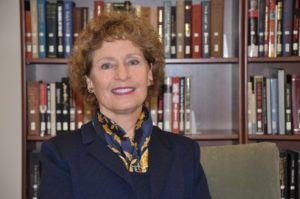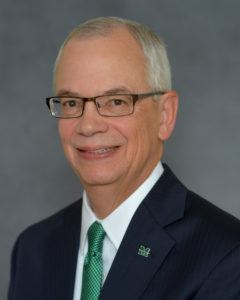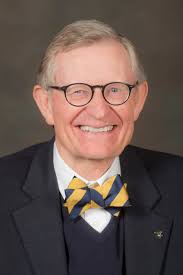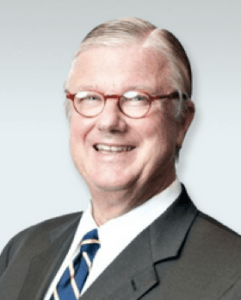Innovation, Entrepreneurship & Health Go Hand-In-Hand at WV Bio Summit
The West Virginia Bioscience Summit, held April 25 in Morgantown, brought together representatives from our state’s research universities, biotech companies, technical assistance providers and others to hear from experts in the field on how to grow the state’s lifescience industries. And, boy did they deliver.
from our state’s research universities, biotech companies, technical assistance providers and others to hear from experts in the field on how to grow the state’s lifescience industries. And, boy did they deliver.
Dr. Mary Hendrix, President of Shepherd University and a nationally recognized leader in cancer research, joined Marshall University President Jerome Gilbert and West Virginia University President Gordon Gee for a special “fire side chat” to discuss university and industry collaborations to drive lifescience growth. The segment was moderated by Dr. Sally Hodder, director of the Clinical Translational Science
Institute (CTSI).
All three presidents agreed that the American education system breeds creativity and collaboration more so than their counterparts in other countries around the world. This creative and collaborative spirit has led to America’s leadership in problem solving and the discovery and innovation that follows.
Dr. Gee stated that creativity is in our DNA and for that reason West Virginia can become a leader in growing the life science industry. Gee noted that West Virginia must find ways to keep its talent here at home. He joked that West Virginia should build a wall
around the state and ask Ohio to pay for it.
Dr. Gilbert explained that he has always associated West Virginia with science. As a young student, his first experience with the state was through attending the National Youth Science Foundation camp as a delegate from Mississippi. He suggested that we need to increase industry/academic partnerships and that the bioscience industries can become an economic stimulus for the state. However, he stated, we must get our political and opinion leaders to both understand and support it more fully.
Dr. Hendrix outlined steps Shepherd University is taking to grow economic opportunity for West Virginia. She discussed the university’s establishment of a center for regional innovation, which has led the school to become a resource and convener for individuals starting businesses. She said that Shepherd is reaching out to companies like Proctor & Gamble, Randox and Amazon, among others, to find out the skill sets they need for their future workforce. These are the types of initiatives, she suggested, that our college system is taking to assist entrepreneurs and facilitate job growth.
George Bennett, a native of Morgantown and one of West Virginia’s preeminent entrepreneurs, provided the keynote address during the Bioscience Summit.
His firm, Good Measures, LLC, has developed a patent-protected approach that helps individuals achieve and maintain nutritional balance for the top 30 nutrients (while only eating foods that they like). Peer-reviewed research shows that when individuals achieve some reasonable level of nutritional balance, their bodies work better.
Good Measures has developed an approach for helping individuals achieve clinically meaningful levels of nutritional balance that combines clinically trained coaches who provide support via phone, email, text, secure video, or in-person. And, various forms of digital technology are used to track progress, to provide real-time feedback on nutrition status, and to generate personalized meal and snack recommendations.
Preliminary research suggests that the new approach is a game-changing breakthrough that could
dramatically impact the lives of hundreds of millions of individuals worldwide. The bottom line: it appears that being in nutritional balance (30 nutrients concurrently) matters significantly to a person’s overall health.
Bennett also provided some critically important tips for entrepreneurs. His suggestions include:
- Learn from a seasoned mentor.
- Have a real world guidepost: find an organization that has money to buy your still-to-be-developed widget or service and that also has an interest in buying it from you if you develop it.
- Keep an eye out for “Waldo”. What’s the next “thing” to be developed; where does the opportunity lie?
- Have a good “shovel” and a willingness to use it. Research your concept to make sure it works and only pursue what looks promising.
Dr. Clay Marsh, Vice President & Executive Dean for Health Sciences at WVU, piggybacked, in many ways, on Bennett’s presentation as he discussed why changing West Virginia’s health culture is critical to improving West Virginia’s economy.
Marsh suggested we needed to focus on keeping people healthy as opposed to just treating them when they are sick. He offered several strategies for doing just that, and hinted towards a partnership with Bennett’s company that could be rolled out in the state at some point in the future.
The Bioscience Summit also featured presentations from Michele O’Connor, WV Jobs Investment Trust, and Aaron Spork, Economic Development Director for the Office of US Senator Capito, on funding opportunities for lifescience companies. John Maher, Vice President for Research at Marshall University, and Sally Hodder, Director of the Clinical & Translational Science Institute and Associate VP for Clinical & Translational Science at WVU, discussed commercialization activities occurring through their organizations. And, Rich Giersch, Director of the WVU Innovation Center, updated the audience on the variety of lifescience companies operating in West Virginia and the successes occurring here at home.
For additional information, visit www.biowv.org.




